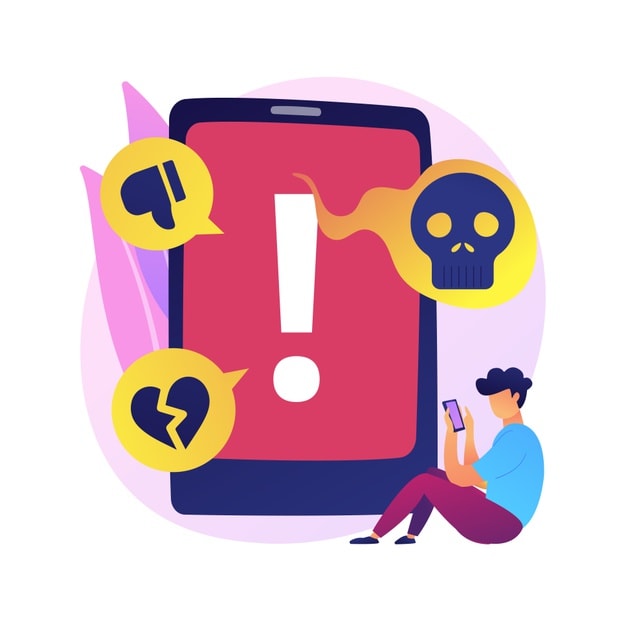- 63 – 66 Hatton Garden London, EC1N UK
Low Cost Detectives are the best rated Online Harassment Detectives in Europe
Low Cost Detectives Online Harassment Detectives Europe. Online provocation has become all too common in the age of the internet. Pew’s 2017 study reported that 41% of Americans have personally experienced online harassment. The harassment methods varied from less severe name-calling to more severe behaviours such as stalking. Additionally, two-thirds of Americans have witnessed abusive or harassing behaviour toward others online. Similar data and figures represent the UK.

Get in Touch with our Expert Harassment Detectives
Online Harassment Detectives Europe. We have over 300 Branches Worldwide. This includes 67 Branches in Europe located in 50 separate European Countries.
Online Harassment Detectives Europe - Types of Online Harassment and Abuse
• Cyberstalking, continued harassment by use of internet. Harass, threaten or intimidate
• Online Impersonation, stealing of identity to cause harm, threat, intimidation or defraud without a persons consent
• Catfishing, Catfishing is an internet scam where someone creates a fictitious online identity for the purpose of starting a relationship. In the age of online dating, catfishing has become more common
• Doxxing, when someone’s personal information is published online as a call for others to harass them
• Swatting, action taken as a result of online harassment and doxxing. If someone’s personal information such as address is released, a call can be made to law enforcement that details a fake dangerous scenario that is happening at the target’s location. In response, SWAT teams respond, showing up at the target’s house fully armed. This scenario is dangerous for the target and their family and is used as a scare tactic
• Trolling, Trolling is the act of someone making unsolicited comments in an online community that are random or controversial, in order to provoke emotion. These “trolls” can cause quarrels or upset people while hiding behind the safety of their screens
• Revenge Porn, Non-consensual pornography or “revenge porn” refers to the act of distributing private, sexually explicit images or videos without the person’s consent. This is often done as a form of revenge and can be extremely invasive and traumatic. Non-consensual pornography can stem from sexting (texting someone a nude photo) if the photo is unwanted or spread to those it was not intended for
Online Harassment Investigations - Key Signs Your Child May Be Cyberbullied in Europe
• Being emotional or upset during or after using the Internet or phone
• Staying secretive or protective of their digital life
• Withdrawing from family, friends or activities
• Avoiding group or school gatherings
• Noticeable slip in grades
• Changes in mood, behaviour, sleep or appetite
• Stopping use of computer or cell phone
• Nervousness or jumpiness when receiving an instant message, text or email
• Avoiding discussions about Internet-related activities
Low Cost Detectives - Online Harassment & Trolling Detectives

Online Harassment Detectives Europe – Russia – Germany – France – (UK) United Kingdom – Spain – Italy – Ukraine – Poland – Romania – The Netherlands – Andorra – Armenia – Albania – Austria – Azerbaijan – Belarus – Belgium – Bosnia – Bulgaria – Croatia – Cyprus – Czech Republic – Denmark – Estonia – Finland – Georgia – Greece – Hungary – Iceland – Ireland – Kazakhstan – Kosovo – Latvia – Liechtenstein – Lithuania – Luxembourg – Malta – Moldova – Monaco – Montenegro – Norway – North Macedonia – Portugal – San Marino – Serbia – Slovakia – Slovenia – Sweden – Switzerland – Turkey – Vatican City
Online Harassment Europe Interesting Links and Articles:
F.A.Q
Please find a list below of frequently asked questions and answers
A Private Investigator’s job is to help organisations, members of the public, and solicitors, to solve sensitive or difficult problems by discretely gathering evidence and information. Information is gathered using professional methods, including tracking, surveillance, making enquiries and monitoring. A Private Investigator will uncover the facts. This information is then presented, and advice is offered for you where appropriate.
Surveillance, monitoring and vehicle tracking
Personal background and history checks
Relationship issues
Employee Absenteeism
Tracing missing people
Investigating fraud and theft
Using a private investigator is perfectly legal, providing that you choose a professional and ethical investigator or agency that follow the rule of the law, based on the country they operate in.
Private investigators employ the use of a variety of professional tools, equipment and know-how to obtain the information they require. The way in which information is gathered will depend completely on the nature of the case that is being investigated.
The price you can expect to pay for a private investigator to take on your case will be entirely dependent on the nature and extent of your enquiry. Factors that will play a part in the cost include the number of operatives that will be required to carry out the investigation, mileage undertaken, and the tools, equipment and resources required.
Typical costs for common investigations are:
Surveillance – £45 – £75 per hour
Tracing people – £150 – £350
Background checks – £55 – £95 per hour
GPS tracking – £300 – £800



